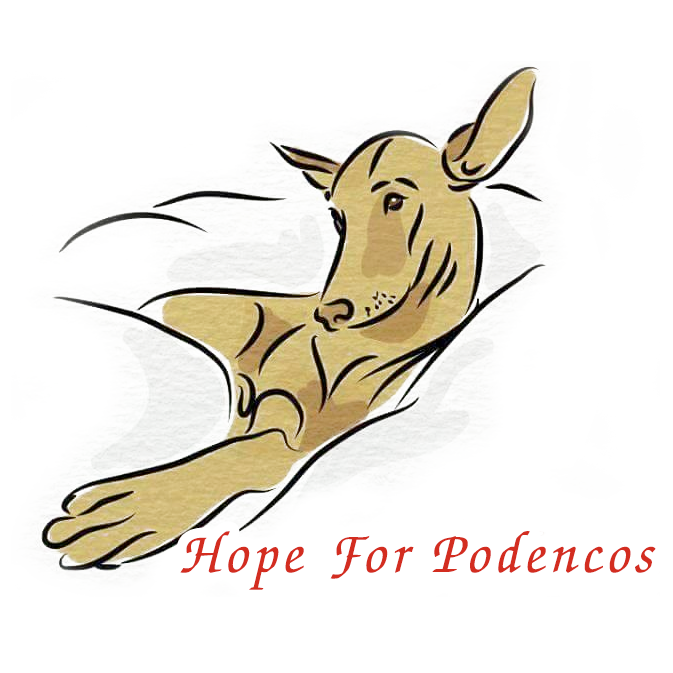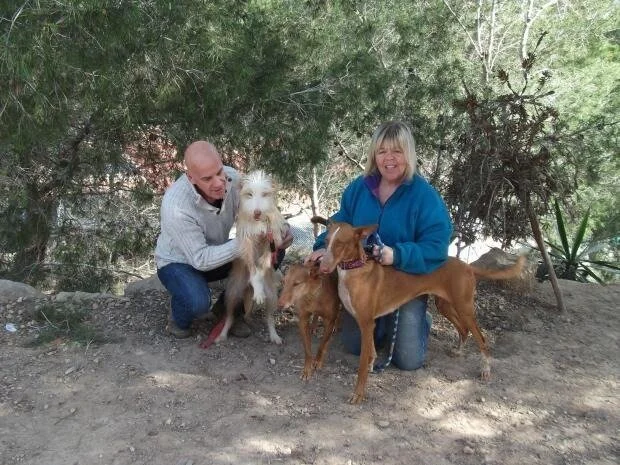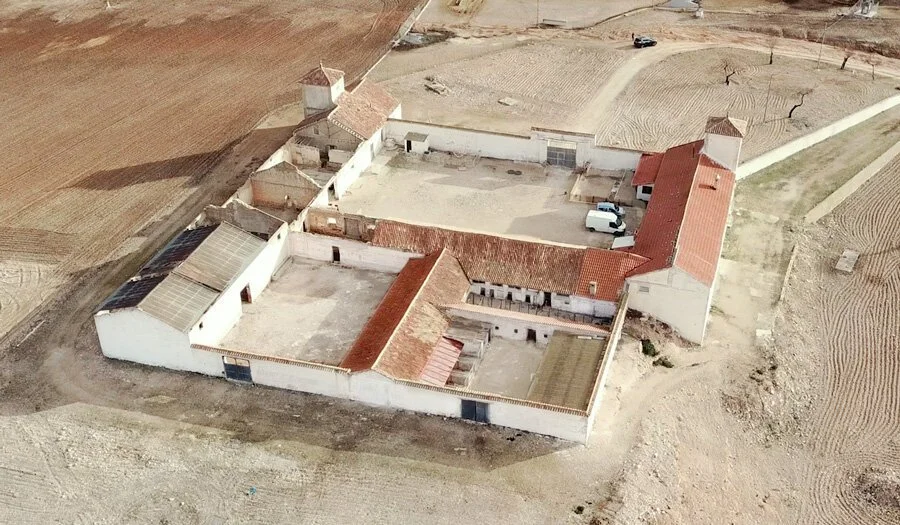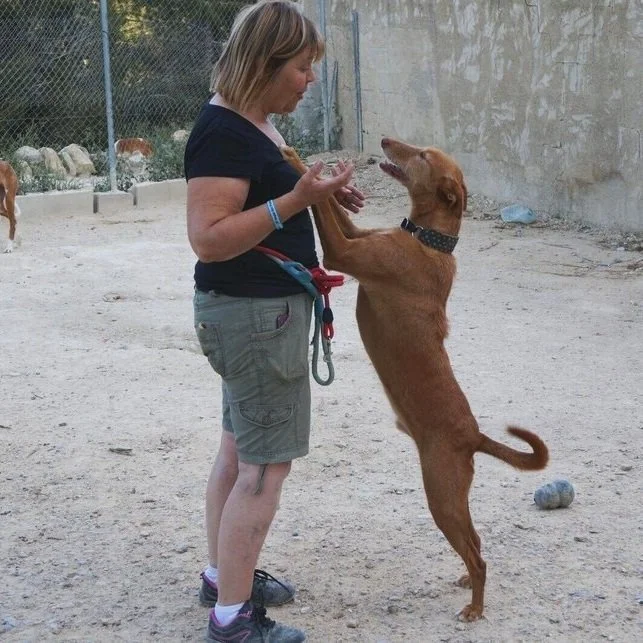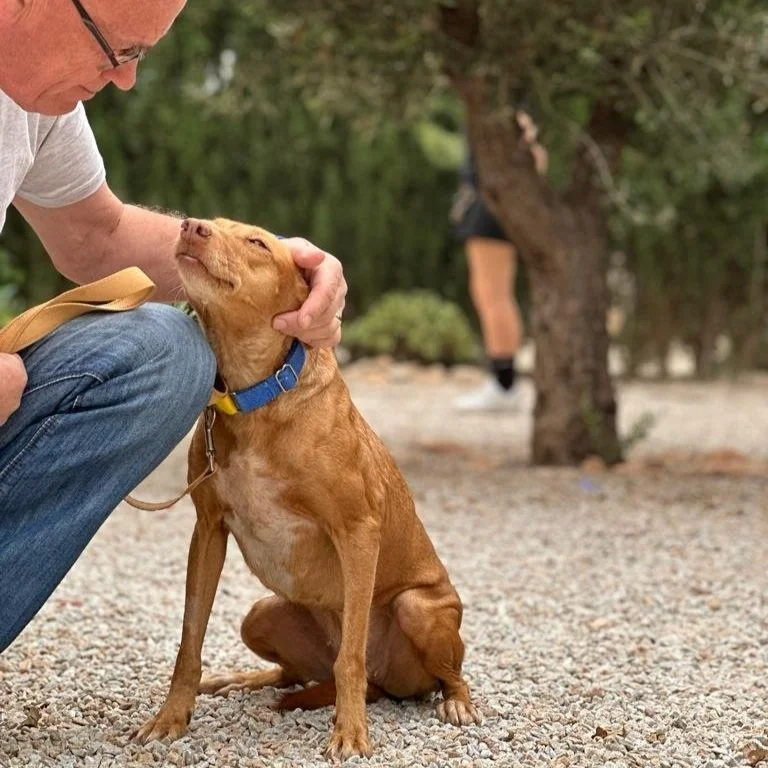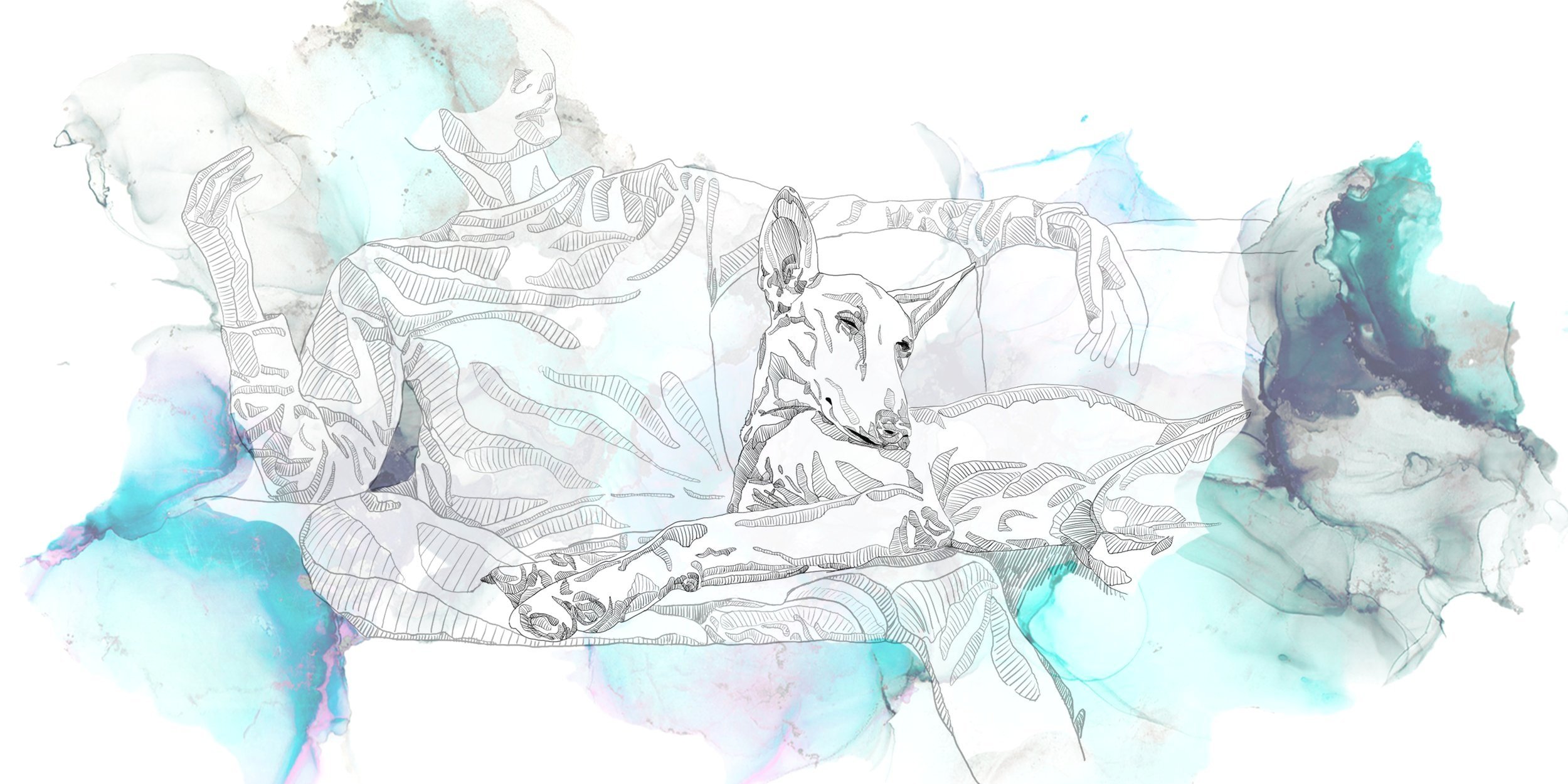
Our story
The Invisible Dogs of Spain.
Podencos are often referred to as ‘Invisible Dogs’ or ‘The Great Forgotten’. They are the most abused dog in Spain. Bred to hunt and kept, usually chained, in squalid conditions - these ‘working dogs’ are not protected by Spanish law. It can be difficult to imagine the suffering they endure, hidden from view.
What most people don’t know about this little known and misunderstood breed is that they are one of the oldest breeds of dog in the world, descending from the ancient Pharaoh Hounds of Egypt. When Irene and Steve Allan semi-retired as dog groomers and moved to Spain in 2009, they started donating their time to local rescues centres, helping to groom dogs in the hope they would appear more adoptable. This is when they met their first Podenco.
A year or so later, Irene met a lady who owned a Podenco and explained their incredibly sad story and mistreatment in Spain, Irene and Steve were horrified. The lady was off to Valencia to help rescue a mum and her pups, Irene and Steve immediately offered their help if it was needed. And it was…
This was the introduction to dog rescue for Irene and Steve and from that day on they started researching and learning how they could help the Podenco.
Initially they helped getting all dog breeds adopted, but as time went on they saw social media post after post of abandoned Podencos. Other rescue centres were full and even those with space often did not have the facilities to keep this breed safely and on top of all this they were very rarely adopted in Spain due to their reputation of being outdoor, working dogs. It was the Podenco that really needed help.
In August 2020 our incredible founder and boss lady of Hope For Podencos passed away unexpectedly after years of dedication to the cause. Irene loved all animals but Podencos had a special place in her heart and she fought for them every step of the way. She left behind our co-founder and her husband Steve Allan - we think he says it best.
“One amazing woman and amazing wife, today was her turn to cross the rainbow bridge and be greeted by family, friends and of course all the dogs that went before her.
Sleep easy my darling it’s time for you to rest XXX”
Steve and the team continued through the remainder of the pandemic, Brexit and coped as best as possible with such a devastating blow to the whole Podenco community - who we hope we have done proud.
But now its time to bring our boss man home to the UK and continue the charity there. This is a big change for us, but an exciting change. Throughout 2023 we worked tirelessly behind the scenes to ensure Hope for Podencos can continue doing what it does best for the pods and their adopters.
Whats next? Now we are growing out our Spanish network who will rescue the podencos and rehabilitate them in their kennels (if its a HFP pod its funded by us) - we will re-home as before and provide full rescue back up and support to our adopters,
As Steve takes a break we will spend 2024 planning for our next big step - watch this space…
The Podencos story.
For many centuries, hunters in rural Spain have used dogs to hunt wild animals across the winter landscape. In the 17th century these dogs were associated with nobility, protected by law and appeared in noblemens’ wills. But these dogs have had a dramatic fall from grace. Today, at the end of each hunting season in February, it is estimated that between 60,000 and 80,000 Spanish hunting dogs (Podencos as well as Galgos, the Spanish Greyhound) are dumped, abandoned or killed, considered too old or too slow for the next season. 60,000 - 80,000 dogs - every single year.
Most dogs are left to their fate by the sides of the road, many picked up by government ‘killing stations’ or perreras but some are punished for poor performance, or simply for ‘sport’ by being hung from trees or thrown down wells alive. Most of these perfectly healthy dogs are under the age of 2, and many of them will be pregnant. There are no regulations on breeding, micro -chipping or guidelines on how Podencos should be kept as they are not considered pets by their hunting owners - they are simply a tool for hunting during the 12 days (Sundays) of hunting season.
Most of their working life is spent on a short chain, without any shelter from extreme weather conditions. Alternatively, they are often crammed into dark sheds, packed so tightly together that they cannot move - forcing them to lay in urine and faeces. They are given very little food or water as it is believed that being starved makes them sharper, better hunters. Dogs with injuries receive no veterinary care - we have often taken in Podencos with serious broken limbs, literally unable to walk, and yet, astonishingly, still being used for hunting. Others will come to us with chains or rope embedded so deeply in their necks that the scarring is permanent.
Females who are bred from are not kept in any better conditions, giving birth whilst chained tightly, the pups arriving onto bare and often filthy concrete floors.
At the end of hunting season each year (in February), their owners repay these young dogs for their hard work and loyalty by throwing them away; abandoning them, killing them, or leaving them to starve, as it is cheaper to get rid of the old ones and breed or buy new ones for the next season, than keep a pack fed until the following season.
Preferred methods of destruction are to throw dogs (alive) over ravines or down well shafts. They are frequently drowned, ofter weighted down with rocks. We have seen dogs left to starve in empty water reservoirs, who have ripped out their claws trying to climb the walls. Dogs with horrific head injuries, dogs abandoned with metal gag bits in their mouths to stop them feeding - and the horrific practice of ‘Playing the Piano’ where a Podenco or Galgo is hung by its neck - its back feet touching the ground just enough to allow it to ‘dance’ while it clings to life, until it is too exhausted and dies a slow, painful and terrifying death by asphyxiation.
Truly it seems the hunters have no limits. It is almost impossible to imagine the suffering these dogs endure especially once you have known and loved a Podenco and have experienced their love and devotion. We are sorry if the images below are distressing, but unfortunately this is the condition our dogs routinely comes to us in. These are a fraction of the dogs that we deal with and we are already at full capacity.
